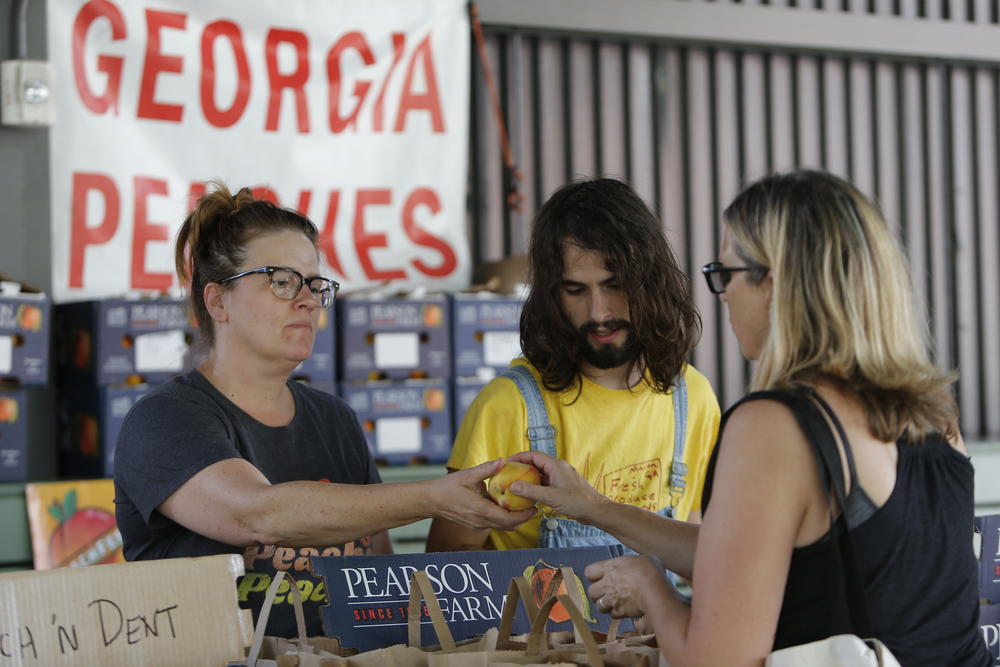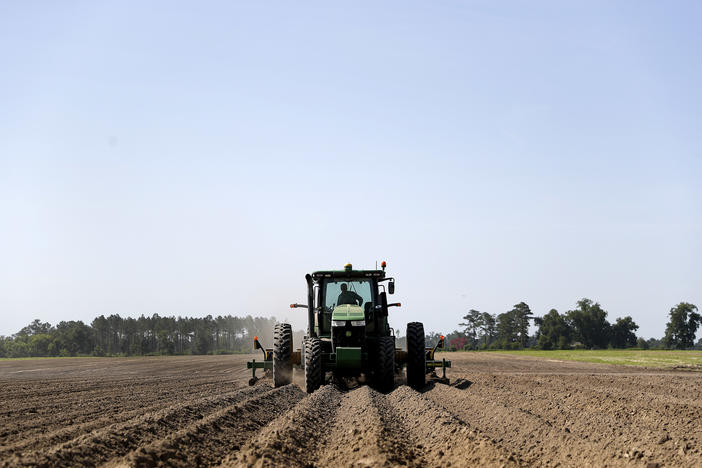Section Branding
Header Content
UGA's Agricultural Forecast For 2020 Says Trade Conflict Hurts Farmers
Primary Content
Economic growth is slowing down because of worries about international trade, according to the University of Georgia College of Agriculture and Environmental Sciences 2020 Georgia Agricultural Forecast released Wednesday.
Trade disputes have created a lack of stability in the agriculture industry, said UGA Professor Adam Rabinowitz, who assisted with the forecast. Georgia has felt the impact in some of its key commodities.
“There’s been a lot of uncertainty lately in the last couple of years as a result of trade disputes,” Rabinowitz said. “Even though there's been a little bit of recovery in some areas, it hasn't been much.”
Cotton production is expected to be down in 2020, fueled by uncertainties in the market and a slowing global economy.
The state’s pecan industry is still recovering from the effects of Hurricane Michael in 2018, but is expecting to improve during this year’s season. The report also said trade issues between the U.S. and China are limiting exports of pecans.
“The earlier the trade conflict between China and the U.S. is resolved, the better for the U.S. pecan industry,” the report says.
Vegetable production is expected to stay strong in 2020, but the report warns that prices for consumers will be “fluctuating.”
Corn production has taken precedence over soybeans and wheat in the state and corn prices are expected to increase.
Growth in beef production is slowing down in Georgia, although the report says that “strong consumer demand” for beef both domestically and internationally should support the cattle industry through the year.
Dairy prices are expected to rise slightly in 2020 because of lower numbers of cows, and exports are expected to help support the industry.
The honey industry is still experiencing the loss of bee colonies due to parasites and starvation. Some commercial operations are seeing 20 to 30% losses while backyard beekeepers are experiencing losses above 80%.
But Rabinowitz said that continued discussions with other global economies, and a lack of new tariffs, could help this year’s economic prospects.
“It’s been a challenge with the all the uncertainty for producers,” he said. “It’s hard to really figure out what the best crop is to produce when option are very limited.”
The report did include some good news for Georgia's pork producers, though.
African swine flu in China and Southeast Asia has taken a toll on the non-domestic pork producers, which has led to a demand for U.S. pork exports. The pork industry is expected to grow by 5% this year.
Secondary Content
Bottom Content





